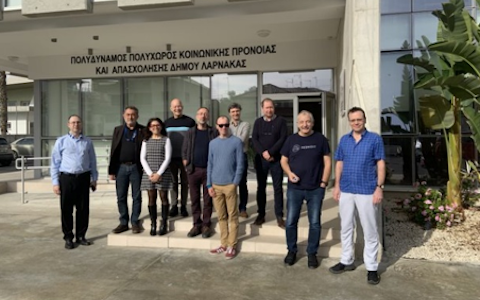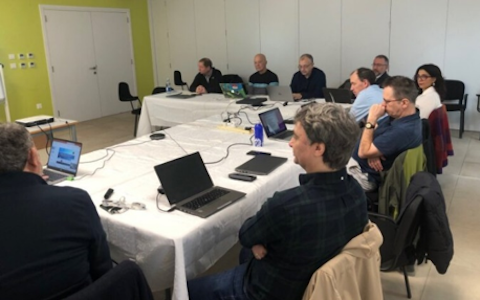SMMI and CMMI lead an international workshop on ocean and climate change in the East Mediterranean

Last January, SMMI co-organised together with Cyprus Marine and Maritime Institute (CMMI) a 2-day workshop on the physical oceanography of the eastern Mediterranean that took place in Larnaca, in the south coast of Cyprus.
The workshop focused on the changing Mediterranean overturning (top-to-bottom) circulation over the last few decades and its implications for accelerated climate change in this region. Physical oceanographers from the Mediterranean region (Greece, Cyprus, Italy, France), with expertise in observing and modelling recent changes, joined members of SMMI and CMMI to address key challenges facing the Mediterranean climate science community.
Dr Nikolaos Skliris from SMMI highlighted some key aspects of recent East Mediterranean Sea climate change: “The Mediterranean Sea is considered one of the most prominent and vulnerable climate change “hotspots” as it appears to changing even faster and more dramatically than the global ocean, which reached record surface warmth in 2023. Especially in the eastern Mediterranean, temperatures are currently increasing much faster than the global average, exacerbating dry conditions which, in turn, drive a salinification of the basin. Excessive ocean warming is already associated with the appearance of a large number of exotic tropical marine species, accelerated sea level rise, and increased intensity and frequency of marine heatwaves and hurricanes (“Medicanes”), all with serious socioeconomic implications.”

The workshop group established the key research questions regarding the current and future status of the Mediterranean overturning circulation under an increasingly warming and drying climate. The group also highlighted the need for a new large-scale fieldwork investigation of East Mediterranean dense water formation processes and changes in hydrological and biogeochemical properties of main water masses.
The foundation of a new research consortium thus emerged, focusing on Mediterranean climate change to explore new ideas for collaborative research and various funding opportunities, within the EU HORIZON Programme in particular.